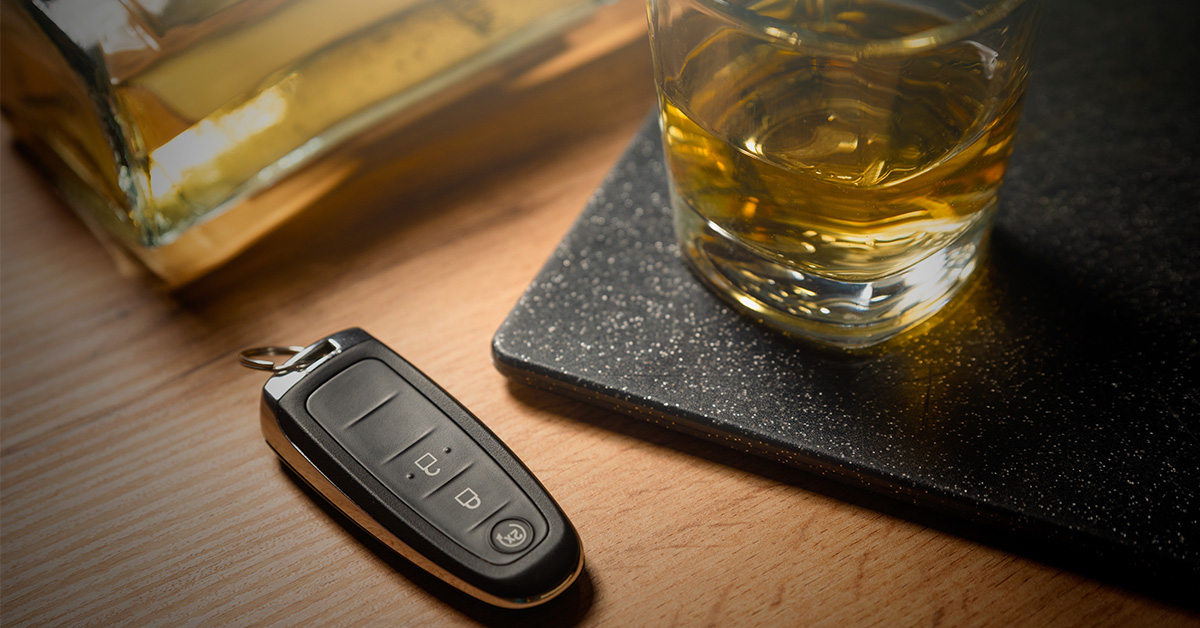Driving sober is an unshakable responsibility that every driver owes to everyone else on the road. Sober driving prevents drunk driving accidents, which claim thousands of lives and cause countless catastrophic injuries each year. By committing to never drive under the influence, we each do our part in creating safer roads and protecting our communities—and our own driver’s licenses. After all, driving is a privilege, not a right, so you can lose it if you get pulled over on suspicion of drunk driving.
The consequences of drunk driving are severe and far-reaching. Legally, offenders face hefty fines, license suspension, and even imprisonment. Societally, drunk driving is a major public safety issue, contributing to countless accidents, injuries, and fatalities annually. If you want to make sure that you don’t contribute to the harm that drunk driving causes, you should start by remembering a few practical tips about avoiding it.
Practical Tips to Avoid Drunk Driving
Plan ahead before you go anywhere:
- Designate a driver: Designating a sober driver helps ensure that everyone can get home safely without the risk of impaired driving; this person commits to not consuming any alcohol and assumes the responsibility of driving everyone home.
- Use public transportation: By planning to use public transportation options such as buses and trains, you can use a safe and reliable way to get home without the risk of driving under the influence. Just make sure you understand public transportation routes before your night begins because intoxication could make it difficult to remember which bus or train to take.
- Hire a rideshare driver: Using a rideshare service like Uber or Lyft provides a convenient and accessible alternative to driving after consuming alcohol. Rideshare services are available at any time, allowing you to request a ride with just a few taps on your smartphone, no matter where you are (assuming your region is covered by the rideshare service provider).
- Consider overnight accommodations: Arranging overnight accommodations at a hotel or a trusted friend's house allows you to avoid driving after drinking by providing a safe place to stay until you are sober. This proactive strategy lets you enjoy your night out without the worry of impaired driving, and then drive safely the following morning.
Know when to stop drinking for the night:
- Understand blood alcohol concentration (BAC): Understanding blood alcohol concentration (BAC) can help you avoid drunk driving. As you consume alcohol, your BAC rises, and even small increases can significantly affect your motor skills, reaction time, and cognitive abilities. Symptoms of intoxication begin to appear at lower BAC levels, such as 0.02% to 0.03%, with slight impairment in judgment and compromised motor skills. As BAC continues to rise, reaching levels around 0.08% and above, the average driver will experience severe symptoms like loss of coordination, slurred speech, diminished balance, and greatly slowed reaction times.
- Drink responsibly: Drinking responsibly, pacing yourself, and staying hydrated are all necessary to help avoid intoxication and its risks. By drinking water alongside alcoholic beverages and moderating your intake, you can maintain better control over your BAC level and reduce the likelihood of severe intoxication or hangovers. Most importantly, never drive if you feel any effects of alcohol, as even slight impairment can significantly increase the risk of accidents and endanger both your life and the lives of others on the road.
Share your knowledge with your friends and family:
- Talk about the dangers of drunk driving: Talking to your friends and family about the dangers of drunk driving can raise awareness and reinforce the importance of making safe choices. By discussing real-life consequences, such as accidents, legal issues, and potential loss of life, you help instill a sense of responsibility and caution when it comes to drinking and driving.
- Explain the legal consequences of drunk driving: Explaining the legal consequences of drunk driving to friends and family is important because it highlights the severe repercussions that can occur, even when no drunk driving accident happens, such as hefty fines, license suspension, and potential jail time.
- Be a role model: Be a role model for the people around you. Volunteer to be the designated driver whenever you can. Set a positive example, especially if some of your friends and family are new drivers who might not yet fully appreciate the dangers of drunk driving.
Legal Counsel for Safe Drivers
You can follow every safety rule in the book when it comes to sober driving, but you can never fully predict the reckless actions of other drivers. If you are ever hit by a drunk driver in Texas, come to Hilliard Law for reliable legal counsel who genuinely cares about your well-being. We’re always ready to fight for our clients and their fair recoveries, even when a case heads to trial. Call (866) 927-3420 to talk to our injury attorneys about filing a claim.

